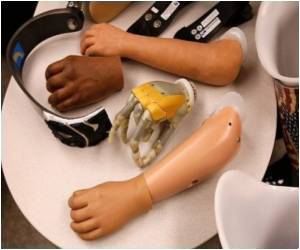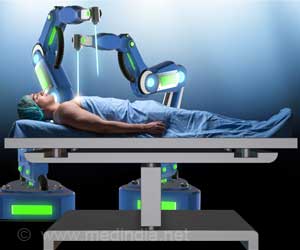
Researchers at the University of Houston used a traditional electroencephalography (EEG) to deal with this limitation and identified brain signals, which worked when volunteers reached to grasp objects.
The advanced interpretation of these signals is captured non-invasively and was then used to create a template to be able to identify hand grasps in an amputee. The amputee was able to control a prosthetic hand using nothing but the power of thought. Researchers believe that one day they will develop thought-controlled prosthetic devices that don’t require a hole in the skull.
Source-Medindia











